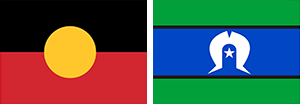HPWD - Frequently Asked Questions
Who is Hume?
Hume is a Community Housing Provider providing homes and services to more than 9,000 customers across NSW. We provide affordable rentals, social rentals, transitional rentals, supported rentals, crisis housing, and Housing for People With Disabilities (HPWD).
We are here to get results; creating and providing wide-ranging housing options and services to improve housing security and reduce homelessness. We provide opportunities for people to prosper by creating vibrant and connected communities.
As a National Disability Insurance Scheme (NDIS) registered Specialist Disability Accommodation (SDA) provider, Hume manages a range of SDA-approved properties across Sydney and region New South Wales under the HWPD program.
What is SDA?
![]()
Specialist Disability Accommodation (SDA) is the home that a person lives in. It is the building that has been approved by the National Disability Insurance Agency (NDIA) as eligible for SDA payments. It is notother supports (i.e. health, clinical, behaviour care) or assistive technology that are provided to a person.
In most cases, people living in an SDA property will share with other people also eligible for SDA in their NDIS plans. There are no more than 5 people sharing in SDA properties with HUME. SDA is not free: people living in an SDA property need to pay rent, just like any other tenant.
Who is SDA for?
SDA is for NDIS participants and is specialist accessible housing. People who get SDA approved in their NDIS plan are those who, even with appropriate home modifications and/or assistance technologies, still need a high level of in-home support from a paid worker with daily activities (i.e. getting in and out of bed, getting dressed, preparing meals, accessing the community).
SDA is for people who need daily support in their home due to their very high physical support requirements or their safety needs. This means one or more of the following;
- ‘Informal supports’ (i.e. often family and friends, people who help you but don’t get paid for their help) can’t meet a individual’s personal care needs;
- A person has spent a long time in a group home or residential aged care facility.
- A person’s behaviour poses a risk to themselves or to others.
Most NDIS participants will NOT get SDA. It is predicted that only 6% of participants will qualify for SDA; meaning 94% will NOT get SDA approved in their plans.
IMPORTANT: Hume cannot assess your eligibility for SDA. You will need to contact your NDIS Support Coordinator to see if you are eligible for SDA funding and/or request a review of your NDIS plan if it is not included.
NDIS Terminology: SDA is accommodation for people who require specialist housing solutions to assist with the delivery of supports that cater for their ‘extreme’ functional impairment of ‘very high’ support need. SDA is intended for participants who have an extreme or complete functional impairment due to disability or have very high support needs (including housing needs) most appropriately met by an SDA response. SDA will only apply where suitable alternative supports and pathways have been considered, including capacity building, mobilising social capital, support coordination and home modifications.
What is the SDA Payment?
Funding you receive for SDA is specifically to cover the cost of the housing – including the land it is on – as well as ongoing costs such as maintenance. It can’t be used by a NDIS participant for any other purpose.
The amount of SDA funding included in an NDIS participant’s Plan will vary. It will depend on a range of factors such as the building type, how many people you live with, location and any additional features.
HUME will claim the amount approved within your NDIS plan. We will draw down on this money directly from our MyPlace portal.
How much will I pay for my accommodation?
In addition to the SDA, NDIS participants will be expected to make a reasonable rent contribution. This contribution is 25% of the Disability Support Pension, plus any Commonwealth Rent Assistance.
What is SIL?
Supported Independent Living (SIL) is assistance paid to a person to provide help in a person home to allow a person to live as independently as possible. It includes physical support (i.e. having a shower, getting in and out of bed) and includes keeping people safe.
SIL funding does not depend on where you live. A person may receive SIL funding but not SDA funding.
NDIS terminology: SIL is assistance with and/or supervising task of daily life to develop the skills of individuals with disability to live as autonomously as possible. SIL supports are daily living services provided onsite in the participant’s home.
What is the difference between Hume and the SIL?
Before the NDIS, funding for an accessible house and in-home support went together. This is because daily personal support was only available in supported accommodation.
These supports have now been separated under the NDIS. Most people who require SIL are able to live in an ordinary home that is already available and does not need any modifications. Most people will have SIL approved as a reasonable and necessary support in their plan will not need SDA.
SDA and SIL are funded differently in a person’s NDIS plan. This separate funding gives people choice and control over where they live and the services they use.
NDIS terminology: NDIS plans that include SDA will have a separate section for this. SIL will appear in the section on Core Support under the heading ‘Assistance in Shared Living Arrangements – Supported Independent Living’. This is described as ‘assistance with and/or supervising tasks of daily life in a shared living environment, with a focus on developing the skills of each individual to live as autonomously as possible. The support is provided to each person living in the shared arrangement in accordance with their need.

